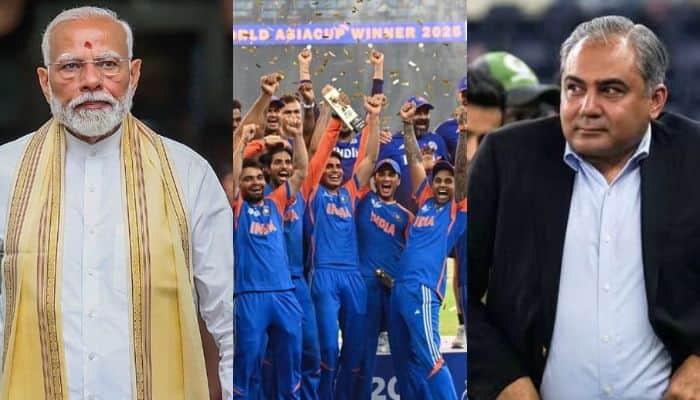India’s thrilling five-wicket triumph over Pakistan in the Asia Cup 2025 final should have been a moment of unbridled celebration for the champions. Instead, the post-match proceedings turned chaotic as Asian Cricket Council (ACC) president and Pakistan minister Mohsin Naqvi refused to follow protocol, sparking an unprecedented controversy. The Indian team, led by Suryakumar Yadav, categorically refused to accept the trophy from Naqvi, citing his political stance against India, and the ACC president blocked alternative presenters, escalating tensions further.
— Akash Kharade (@cricaakash) September 29, 2025
A Celebration Overshadowed by Politics
The final, held in Dubai, was a nail-biter. India edged past Pakistan by five wickets, with Tilak Varma’s unbeaten half-century and Kuldeep Yadav’s four crucial wickets defining the match. Fans expected a traditional post-match presentation celebrating Indian dominance. However, Naqvi’s refusal to hand over the Asia Cup trophy transformed a historic sporting victory into a political spectacle.
Despite efforts from ACC officials to mediate and propose Emirates Cricket Board vice-chairman Khalid Al Zarooni as an alternative presenter, Naqvi remained adamant. The result: a prolonged standoff lasting nearly an hour, leaving fans chanting patriotic slogans while the Indian team remained dignified, refusing interaction with the Pakistani officials.
Mohsin Naqvi vs PM Modi: A Twitter War
Adding fuel to the fire, Naqvi responded to Prime Minister Narendra Modi’s congratulatory tweet with a politically charged statement:
“If war was your measure of pride, history already records your humiliating defeats at Pakistan’s hands. No cricket match can rewrite that truth.”
This unprecedented politicization of sport drew immediate condemnation from analysts, players, and fans alike. Many highlighted the stark contrast between Modi’s sportsmanlike gesture and Naqvi’s inflammatory rhetoric, noting that dragging war into cricket undermines the spirit of the game.
The Board of Control for Cricket in India (BCCI) supported the team’s stance. Secretary Devajit Saikia clarified that India could not accept the trophy from someone actively “waging a war against the country,” underscoring the team’s principled stand.
Controversies Beyond the Field
The drama was not limited to the final. Throughout the tournament, tensions simmered between India and Pakistan. Indian players avoided handshakes with their Pakistani counterparts, and incidents like Haris Rauf’s provocative gestures further strained relations. Naqvi amplified these moments, posting videos and tweets mocking India’s military operations, intensifying the off-field controversy.
Earlier matches also saw Pakistan accusing match referee Andy Pycroft of bias and disputing umpiring decisions, reflecting a pattern of grievances that overshadowed cricketing achievements.
India Stands Tall Amid Controversy
Despite the political theatrics, India’s players focused on cricket. Tilak Varma, Abhishek Sharma, and Kuldeep Yadav were celebrated for their individual performances, and fans lauded the team’s composure under pressure. The post-match ceremony ended quietly, with individual awards distributed while the ACC trophy remained absent from the stage.
The incident has sparked calls for reform in ACC protocols, with suggestions that political officeholders should not officiate in sporting presentations. The BCCI has announced plans to lodge a “very strong protest” at the upcoming ICC meeting, seeking accountability for Naqvi’s actions.

